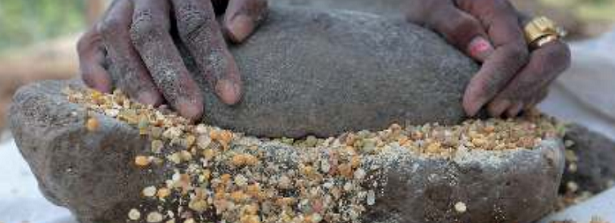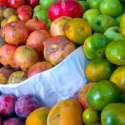Metrics and programming in Nutrition Sensitive Agriculture

Nutrition-sensitive agriculture interventions have the potential to improve diets if the process includes ongoing monitoring and if the targets for Nutrition Sensitive Agriculture (NSA) programmes are realistic and focused. This is one of the key take-aways of a workshop and an expert meeting organized by the Netherlands Working Group on international Nutrition (NWGN).
Further take-aways included that to address malnutrition adequately, integrated approaches are needed, through co-location of different nutrition-sensitive and nutrition-specific programs that can leverage each other. Nutrition as a topic needs to become more “accessible” for policy makers and practitioners: there is a need for “nutrition for dummies” to realize nutrition sensitive agriculture in a cost-effective way at the center of Sustainable Development Goal (SDG) 2. The Nutrition Community, involving practitioners, policymakers and researchers should also engage (more) in a shared learning agenda through common monitoring and evaluation approaches and metrics. Contextualization of programs and questionnaires is key: what works in one context cannot be standardized across countries in relation to gender equality, food distribution and food allocation, cultural differences between regions. Applying a gender lens and furthering women’s empowerment through agriculture remains essential, using tools to unpack the agriculture-nutrition pathways and to help fine-tune programming.
The NWGN proposes, as a follow-up to both events and in line with the SDG framework, to develop cost-effective measurement approaches, and to keep track of changes in nutrition related knowledge, attitudes and practices at individual and household level with a gender inclusive lens. It will also look into the lack of standardized approaches to measure overnutrition and report on the systemization of experiences on how to make agricultural programs work for nutrition. NWGN also proposes to Dutch policymakers to prepare a common agenda for adaptive programming and learning, and to look into the Food and Nutrition Security results and indicator framework of 2018.
Follow this link for the brochure, summarizing the outcomes of both events.
Background
The Netherlands Working Group on international Nutrition (NWGN) organized two events, in December 2017 and May 2018, to share approaches, metrics and practices of food security and agriculture programs on nutrition and identify approaches to measure progress.
The outcome of the first meeting showed that the result framework which is used to guide nutrition sensitive programming clearly depicts the complexity and influences of different sectors like health, agriculture and education. The advice is therefore to focus on outcomes such as household access to food, dietary diversity and feeding practices, and not on impact on the nutritional status, with a sound monitoring evaluation and learning mechanism design.
With the insights gathered from the first meeting in December 2017, the second external meeting had 3 objectives: a) How can we ensure Nutrition Sensitive Agricultural (NSA) interventions work for nutrition by taking into account lessons learned on the pathways of change?, b) How can we measure the contributions of NSA interventions on nutrition, along the pathways, with improved metrics?, c). How can we ensure the lessons learned are relevant for policy, programs and innovation projects?
Multi-stakeholder collaboration
Members of the Netherlands Working Group on international Nutrition that contributed to the two events and the related publications are: ICCO Cooperation, KIT Royal Tropical Institute, Save the Children Netherlands, SNV, GAIN and WUR. Financial and advisory support was provided by the Food & Business Knowledge Platform and the Ministry of Foreign Affairs.






